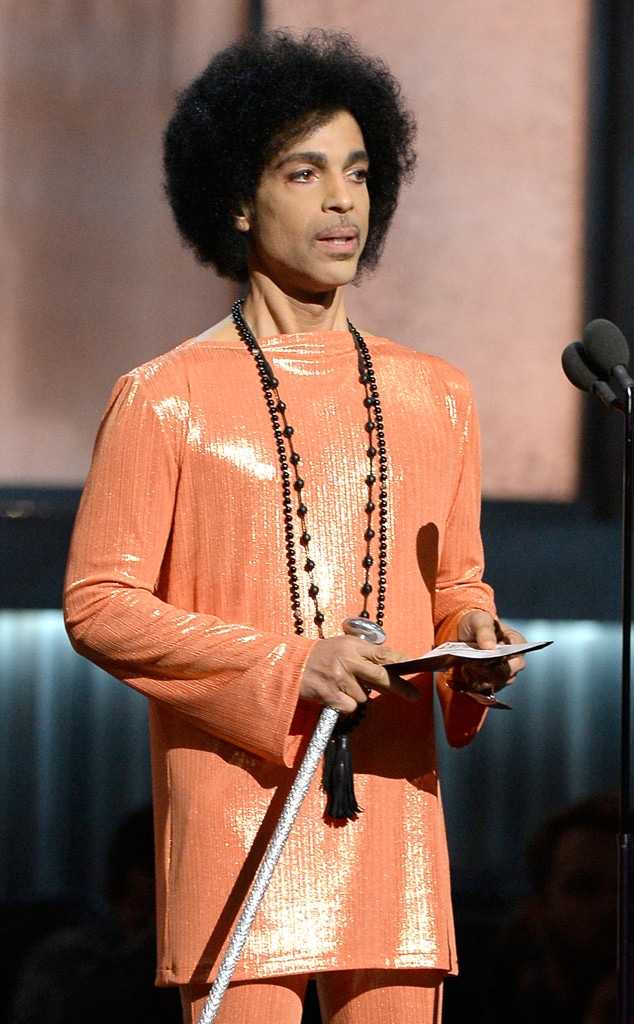 Kevork Djansezian/Getty Images
Kevork Djansezian/Getty ImagesNearly a year after Prince was found unconscious in his Paisley Park home, search warrants from the investigation into his death have been newly unsealed.
The documents, filed April, May, June and September of last year, provide greater insight into the days leading up to the star's accidental opioid overdose, including medications he was in possession of without prescriptions. Per the unsealed affidavits, pills were discovered within the compound, particularly in places that the late star would frequent, like his bedroom and laundry room. According to the documents, many pills were found stored in bottles for other medications, and in some instances, were kept in vitamin bottles.
Some of the medication were prescribed to Prince's longtime friend and aide, Kirk Johnson. Dr. Michael Todd Schulenberg, who saw Prince two times before his death, arrived on the premises on April 21 to drop off test results and, when later questioned by authorities, admitted that he prescribed oxycodone on April 14 to Johnson to protect the musician's privacy.
Per the papers, Johnson contacted Schulenberg to help Prince with hip pain, for which he prescribed clonidine, hydroxyzine pamoate and diazepam, medications typically used for anxiety and high blood pressure. Johnson picked up the prescription the day before Prince's death and told authorities it "was the first time he had ever done something like that for Prince."
According to the search warrants, Andrew Kornfeld also arrived to Paisley Park on the day of Prince's death as a representative of his father, Dr. Howard Kornfeld, who founded Recovery Without Walls. Andrew was visiting the compound that day to determine if Prince could be a candidate of their program and said he received information from Johnson that Prince was struggling with opiate use. However, Johnson denied knowing Prince had an addiction to pain medication.
Andrew was also found to be carrying several envelopes containing pills when he came to Paisley Park on the day of Prince's discovery, but did not have any prescriptions for them and is not a licensed doctor. He denied to officials that he had any intention of treating Prince with the medication.
The affidavits also state that Prince, who did not have a regular doctor, died of an accidental overdose on fentanyl. However, the available affidavits do not reveal how he obtained the drug.
Upon further investigation into Prince's computer use and communication, authorities learned Prince communicated via his landline phone and through email, but did not use a cell phone because of a previous hacking. A suitcase with a tag labeled "Peter Bravestrong" and corresponding email address suggested Prince used an alias while traveling. In the process of interviews, authorities also learned he had been in a romantic relationship with singer Judith Hill since 2014. Hill was with Prince when he was briefly hospitalized after his plane made an emergency landing on April 14, 2016.
"The investigation remains active at this point," Jason Kamerud, chief deputy for the Carver County Sheriff's Office, told The New York Times. "We've gained a lot of progress over the last year, but there still is some more work to be done."